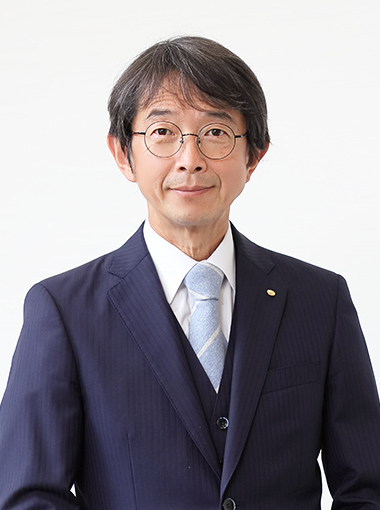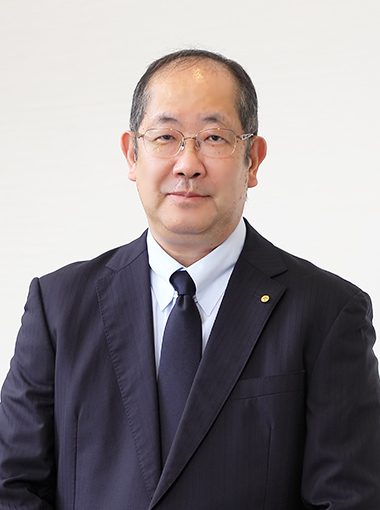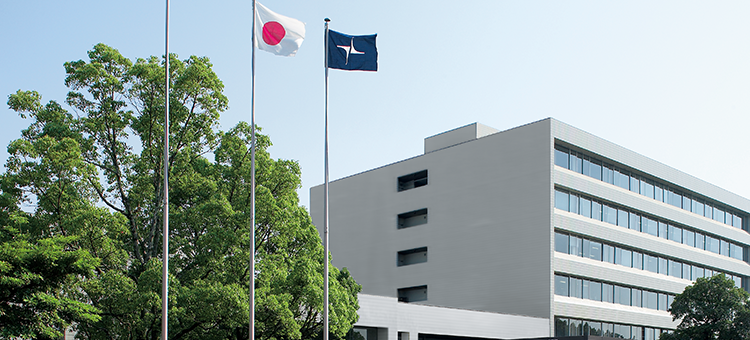
Kiichiro Toyoda played a major role in establishing Japan's automotive industry. He understood that technological progress is driven by the synergy between practical engineering and academic research. Since its founding, Toyota has recognized the fundamental importance of academic inquiry, guided by the philosophy of contributing to the nation through industry. Regardless of the business climate, Kiichiro placed research alongside corporate operations and pursued it with unrelenting passion.
Established in 1960 with joint investment from the Toyota Group, Toyota Central R&D Labs., Inc. embodies this spirit by embracing the guiding philosophy of creating new business and industry. As part of a diverse and dynamic group of companies, we will carry this identity forward.
In 2020, an estimated 1.6 billion vehicles roamed the world's roads, roughly 150 million of which were Toyotas - nearly one in ten. As the population grows and the demand for mobility increases, automobiles will play an even greater role in transporting people and goods. However, freedom of movement presents challenges, such as traffic accidents and energy consumption. My aim is to drive these negatives toward zero while transforming vehicles into moving infrastructure that channels their vast energy and data back into society. With 150 million Toyotas already on the road, we hold a significant piece of the social system puzzle.
Leveraging this strong foundation, we conduct research that helps the Toyota Group continually redefine the value of mobility. Cars have long been integral to logistics and industry. We now envision them evolving into hubs of information and energy, expanding the ways vehicles can address social challenges.
Toyota Central R&D Labs. unites approximately 800 researchers with diverse expertise and about 150 planning and operations professionals. Together, we advance a wide range of R&D, from materials development and energy technology to quantum-beam analysis and quantum science - the foundation of tomorrow's innovations. Our close links with Toyota Group companies allow us to quickly transition from fundamental discovery to real-world deployment.
Above all, I value the drive to push forward and the curiosity to uncover uncharted potential, regardless of age, gender, discipline, or experience. We view every moving car as an essential part of society and will continue to create new value in mobility while contributing to build the infrastructure of the future.
We greatly appreciate your continued interest and support as we tackle the challenges ahead.
Chief Executive Officer
Nobuhiko Koga

Established in 1960, Toyota Central R&D Labs., Inc. contributes to society by promoting scientific research and technological innovation across the Toyota Group to advance academic progress and industrial development. In recent years, global challenges have expanded beyond energy and climate change to include geopolitical conflict and social division. We believe that a modern research institute must adapt to these changes, anticipate future needs, influence emerging trends, and guarantee that its research benefits society.
We have designated 2030 - our 70th anniversary - as the start of a new growth phase. With the goal of realizing a symbiotic mobility society for people and the environment, we are strengthening our research and development capabilities with a forward-looking approach.
Quantum technology is one of our highest priorities, and we expect it to play a central role in tomorrow's information society. To enhance safety and security, reduce congestion, and promote efficient energy use, mobility must be seamlessly integrated with social infrastructure to create new value. Accordingly, we are intensifying our work on ultra-sensitive quantum sensing and quantum information processing. Both are essential for the low-energy, high-speed handling of vast data volumes that conventional technologies cannot easily manage.
To ensure the sustainability of manufacturing industries, crucial issues must be addressed, such as energy and resource recycling, workforce security, and productivity gains. To accelerate innovation, we will integrate our strengths in materials science, process technology, and artificial intelligence to build an intelligent R&D platform that fosters collaboration between people and AI.
Our greatest asset is our researchers, who identify challenges arising from real-world manufacturing settings and pursue science- and engineering-based, practical solutions that benefit society. By expanding our partnerships with leading researchers and institutions worldwide, we will strengthen our capabilities and ensure the consistent deployment of our results through Toyota Group production sites.
We are also committed to recruiting and developing research talent to drive the next wave of innovation, as well as research administration professionals to support them. This will strengthen our organization's overall capabilities. We will continue to embrace new research challenges with the goal of achieving the symbiotic mobility society for people and the environment.
President and Chief Research Officer
Takashi Shimazu

